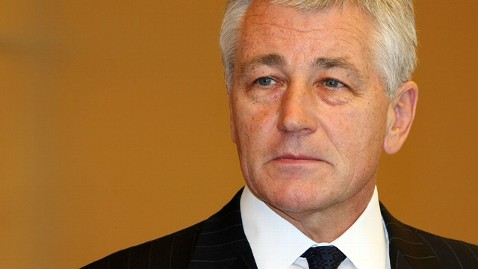CARACAS (Reuters) - Venezuela will postpone the inauguration of President Hugo Chavez for a new term due to health problems, the government said on Tuesday, another sign the socialist leader's cancer may be bringing an end to his 14 years in power.
The 58-year-old former soldier who has dominated the South American OPEC nation since 1999 has not been heard from since surgery on December 11 in Cuba - his fourth operation since he was diagnosed with an undisclosed type of cancer in June 2011.
The announcement outraged opposition leaders who insist that Chavez must be sworn in before the National Assembly on January 10 as laid out in the constitution, or temporarily step aside and leave an ally in power.
"The commander president wants us to inform that, based on his medical team's recommendations, the post-operative recovery should extend past January 10," said Vice President Nicolas Maduro, Chavez's chosen successor, in a letter read to the legislature.
"As a result, he will not be able to be present at the National Assembly on that date."
The letter said authorities would seek another date for the inauguration ceremony but did not say when it would take place or give a time frame for Chavez's return from Havana.
Rather than being sworn in by the legislature, he would take his oath at a later date before the Supreme Court, the letter said, as allowed by the constitution.
Government leaders insist Chavez is completely fulfilling his duties as head of state, even though official medical bulletins say he has a severe pulmonary infection and has had trouble breathing.
The government has called for a massive rally outside the presidential palace on Thursday, and allied presidents including Uruguay's Jose Mujica and Bolivia's Evo Morales have confirmed they will visit Venezuela this week despite Chavez's absence.
Argentine President Cristina Fernandez has announced plans to visit Chavez in Havana on Friday.
But the unprecedented silence by the president - famous for regularly speaking for hours in meandering broadcasts - has left many convinced he could be in his last days.
His resignation or death would upend politics in the oil-rich nation, where he enjoys a deity-like status among poor supporters thankful for his social largesse.
His critics call him a fledgling dictator who has squandered billions of dollars from crude sales while dashing the independence of state institutions.
CONSTITUTION DISPUTE
The constitution does not specify what happens if the president does not take office on January 10.
The Supreme Court, controlled by Chavez allies, called a news conference for Wednesday. It is widely expected to announce an interpretation of the constitution that will give Chavez leeway to take office when he is fit to do so.
If he dies or steps aside, new elections would be called within 30 days. Before leaving for Havana in December, the president instructed his supporters to back Maduro in that vote if he were unable to continue.
Opposition leaders argue that Congress chief and Chavez ally Diosdado Cabello should take over, as mandated by the constitution if the president's absence is formally declared.
Cabello has ruled that out, saying the president continues to be in charge.
"Who could have believed the opposition would be screaming for Diosdado Cabello to be given the presidency of the republic?" he said during a rambunctious session of Congress. "That's crazy, the opposition is losing it."
Meanwhile opposition deputies accused the Socialist Party of failing to follow Chavez's instructions - a scene that would have been unimaginable before Chavez's prolonged absence.
"President Chavez is the only one among you who has spoken clearly," said opposition leader Julio Borges.
He was drowned out by pro-Chavez deputies clapping and chanting the socialist leader's name and rebuffed by Cabello, who had long been considered a potential successor to Chavez until he was passed over for Maduro.
"It's not my fault you weren't chosen, don't take your frustration out on me," Borges quipped.
Another opposition deputy complained that during the debate a copy of the constitution was thrown across the chamber from the direction of the Socialist Party's deputies.
Chavez's supporters have held near-daily vigils for his recovery, while opposition activists accuse the president's allies of a Cuban-inspired manipulation of the situation.
Maduro has taken over the day-to-day running of the government and looks set to continue in the role past Thursday.
The mustachioed former bus driver lacks Chavez's charisma, but he has sought to imitate the president's style with vituperative attacks on the opposition and televised ribbon-cutting ceremonies.
With the micro-managing Chavez away, major policy decisions in Venezuela, such as a widely expected devaluation of the bolivar currency, appear to be on hold.
Venezuelan bond prices, which had soared in recent weeks on Chavez's health woes, dipped on Monday and Tuesday as investors' expectations of a quick government change apparently dimmed.
"The 'regime change' euphoria seems excessive taking into account the unclear legal transition and perhaps, more importantly, the risk that regime change does not allow for policy change," New York-based Jefferies' managing director Siobhan Morden said in a note on the bonds.
(Editing by Daniel Wallis and Eric Beech)













